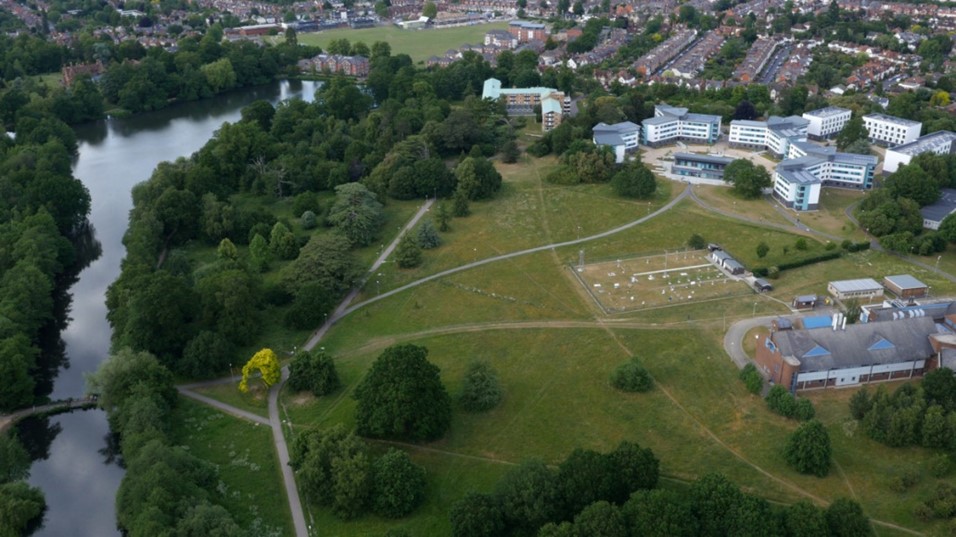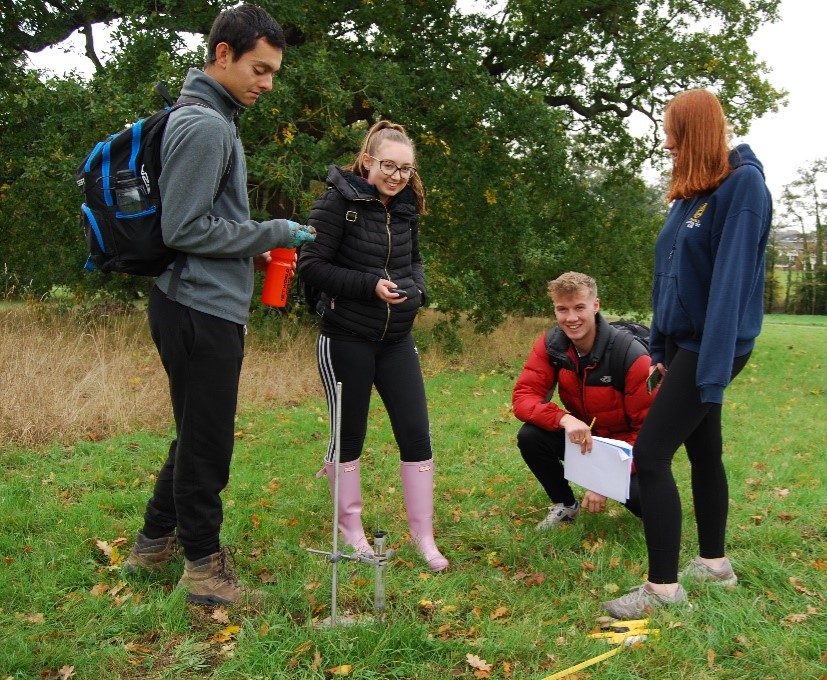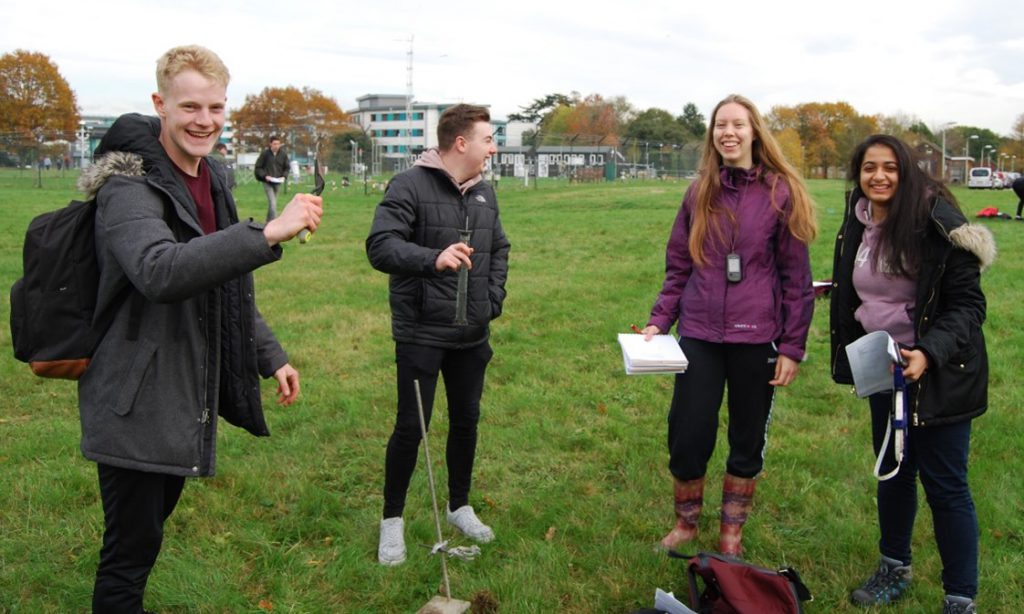Andrew Wade a.j.wade@reading.ac.uk
Department of Geography and Environmental Sciences
Overview
Field work is well known to improve student confidence and enhance skills and knowledge, yet there is evidence for a decline in field work in Secondary Education, especially amongst A-level Geography students. This is problematic as students are entering Geography and Environmental Science degree programmes with reduced skills and confidence around field-based data collection and interpretation, and this appears to be leading to an apprehension around data collection for dissertations. A simple field-based practical where 47 Part 2 Geography and Environmental Science students tested their own hypotheses about factors that control water infiltration into soils was developed. Improved confidence and appreciation of critical thinking around environmental data was reported in a survey of the student experience. Student coursework demonstrated that attainment was very good, and that skills and critical thinking can be recovered and enhanced with relatively simple, low-cost field-based practical classes that can be readily embedded to scaffold subsequent modules, including the dissertation.
Context
The importance of field work is well established in Geography and Environmental Science as a means of active and peer-to-peer learning. However, students appear to have little confidence in designing their own field work for hypotheses testing when they arrive for Part 1, probably due to a decline in field work in Secondary Education (Kinder 2016, Lambert and Reiss 2014). Within the Geography and Environmental Science programmes, there is a part two, 20 credit ‘Research Training’ module that develops the same skills. However, this research training module and the dissertation are seen by the students as being of high risk in that they perceive a low mark will have a significant negative impact on the overall degree classification. Consequently, students are seemingly risk adverse around field-based projects. The idea here is to make field-based training more commonplace throughout multiple modules through inclusion of relatively simple practical training, so that hypotheses testing, critical thinking and confidence with ‘messy’ environmental data become intuitive and students are at ease with these concepts. In parallel, GES module cohorts have increased in recent years and this is an additional reason to develop simple, low-cost practical classes.
Objectives
The aim of the project was to determine if a simple, field-based practical would help boost student confidence around field data collection and interpretation, and hypotheses testing. The objective was to give the students a safe and supportive environment in which to develop their own hypotheses and method for field data collection, and to learn to interpret often ‘messy’ and ‘complex’ environmental data.


Implementation
A practical was designed where 47 Part 2 students, working in groups of four or five, developed their own hypotheses around the factors controlling rainfall infiltration on a hill-slope in the class room following an in-class briefing, and then tested these hypotheses in the field using Mini Disc infiltrometers (Figs. 1, 2 and 3). There was a further follow-up session where each student spent two hours processing the data collected and was briefed on the coursework write-up.

Impact
Of 40 students who responded to an on-line survey:
- 37 agreed the practical helped develop their critical thinking skills around complex and incomplete environmental data;
- 36 agreed they were now better able to deal with uncertainty in field-based measurements;
and 38 feel more confident working in the field.
Student quotes included:
- “The practical was very useful in helping to understand the processes happening as well as being more confident in using the equipment.”
- “I thought the practical was good as it was another way to process information which tends to work better for me, doing and seeing how it works allows me to gain a higher understanding in the processes”
The majority of students gained first class and upper second-class marks for the project write-up and the reports submitted demonstrated good critical thinking skills in the interpretation of the infiltration measurements. There has been a noticeable increase in the number of students opting for hydrology-based dissertations.
Reflections
Confidence and critical thinking skills can be enhanced with relatively simple, low-cost field-based practicals that scaffold subsequent modules including Research Training for Geographers and Environmental Science, and the dissertation, and focus on hypotheses testing in addition to knowledge acquisition. Each student spent 2 hours in the field on campus and 2 hours processing their data, with further time on the coursework write-up. This seems a reasonable investment in time given the benefits in confidence, skills and knowledge. Embedding such practicals should not replace the larger skills-based modules, such as Research Training, nor should such practical classes replace entirely those that focus more on knowledge acquisition, but these practical classes, where students explore their own ideas, appear to be a useful means to boost student confidence and critical thinking skills at an early stage. The practical was also an excellent means of encouraging peer to peer interaction and learning, and this and similar practical classes have good potential for the integration of home and NUIST students.
Follow up
Embed similar practical classes in part one modules to build confidence at the outset of the degree programme and, at part three, to further enable integration of home and NUIST students.
Links and References
Kinder A. 2016. Geography: The future of fieldwork in schools. Online: http://www.sec-ed.co.uk/best-practice/geography-the-future-of-fieldwork-in-schools/ (Last accessed: 03 Jan 2020).
Lambert D and Reiss MJ. 2014, The place of fieldwork in geography and science qualifications, Institute of Education, University of London. ISBN: 978-1-78277-095-4. pp. 20